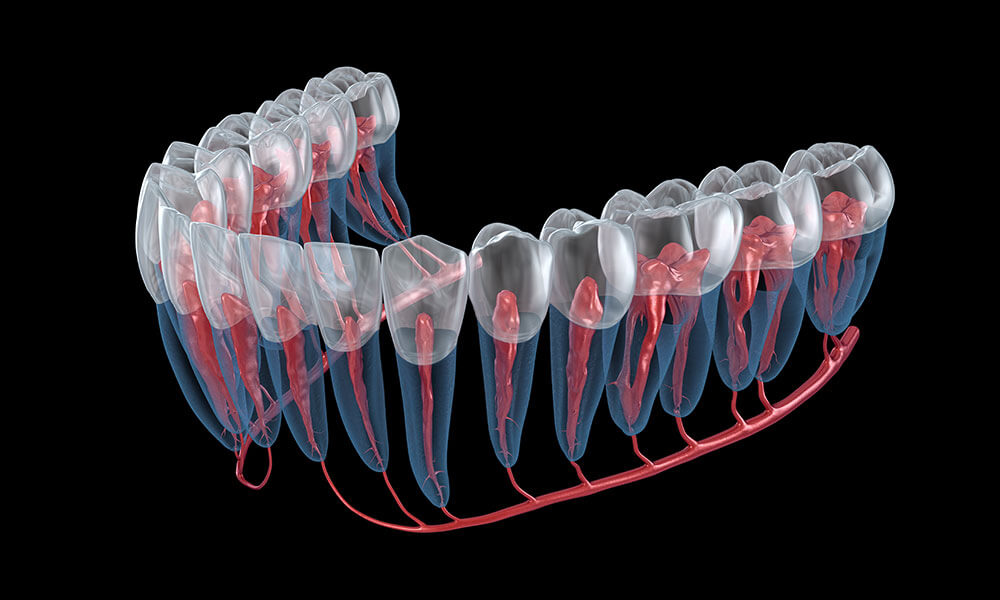Tooth decay is a widespread dental issue that can severely affect oral health. If left untreated, persistent decay can reach the pulp, leading to severe inflammation and painful symptoms that disrupt your daily life. Root canal therapy is the definitive solution for pulp infection. The dental team of the Kelowna dentist is highly skilled and experienced in performing root canal therapy effectively. They eliminate pulp infections and save your natural tooth from unnecessary extraction.

An introduction to root canal therapy
Root canal therapy is a common endodontic procedure that can successfully eliminate pulp infection and restore it with a biocompatible material to prevent reinfection. A root canal is an enclosed chamber within the tooth root that is either single or multiple, depending on the number of roots present. It consists of the pulp, which is the innermost core consisting of nerves and blood vessels. Any untreated tooth infection can spread to the pulp and the canals, damaging the nerve endings. This can lead to painful symptoms, negatively impacting your quality of life.
Root canal therapies offer a high success rate in restoring a diseased tooth if performed by a skilled dentist using the latest technology and techniques.
What are the signs indicating the need for root canal therapy?
There are a few classical signs that indicate the need for root canal therapy. These include:
- Extreme tooth pain that does not subside easily even with medication
- Increased sensitivity to hot and cold temperatures
- Swollen, inflamed, and bleeding gums around the infected tooth
- Dental abscess (pus-filled pouch) at the root apex of the affected tooth
- Visibly swollen jaw resulting in facial asymmetry
- Tooth discoloration (appear bluish)
- Pain when pressure is applied during chewing
- A chipped or cracked tooth
- Mobile or loose tooth
What does root canal therapy involve?
Pain relief is the prime focus of root canal therapy. This procedure involves the following steps:
Initial consultation and tooth evaluation
- Your dentist will first evaluate your symptoms and record your medical history
- Dental X-rays will be taken to evaluate the source of pain and study the root morphology (number and shape).
- Local anesthesia will be administered to ease pain and discomfort during the procedure.
Removal of the infected pulp
- Your dentist will remove the carious lesion from the tooth surface using ultrasonic instruments.
- An access opening will be made to expose the coronal pulp (crown part).
- Once the pulp tissue is removed, your dentist will locate the root canals to open them.
- Rotary files will be used to remove the remaining radicular pulp (root part) and clean the canals.
- The root canals are shaped, disinfected, and filled with gutta-percha.
- Your dentist will finally seal the tooth crown with a temporary filling.
What benefits does root canal therapy offer?
Root canal treatment is the most common endodontic procedure offering the following benefits:
Alleviates pain
A tooth infection can lead to throbbing and debilitating pain that can distract you from your routine activities. Root canal treatment eliminates the damaged nerves and vessels and soothes your toothache.
Reduces tooth sensitivity
An infected or inflamed tooth can increase your tooth sensitivity to hot and cold things. Root canal treatment helps reduce sensitivity by removing the inflamed tissues.
Prevents further damage to the affected tooth
The root canal offers a permanent solution to inflamed pulp tissues and restores your natural tooth. This greatly reduces further damage and your need for extractions.
Saves your natural smile and boosts your aesthetics
- The tooth treated by root canal treatment is restored with a suitable tooth-colored dental crown to regain its original form. This boosts your confidence by enhancing your overall appearance and smile.
Prevents infection of the neighboring teeth
The infection in the dental pulp does not confine to a single tooth, but it can rapidly spread to other teeth, destroying your smile and oral health. Root canal treatment can inhibit the infection spread by eliminating the infected tissues and sealing the tooth completely.
It is a quick and easy procedure
Unlike extractions and implants, root canal treatments can typically be done in a single appointment. With the advanced instrumentation used, the procedure is done easily under local anesthetic.
Once the RC-treated tooth heals, your dentist will permanently restore it with a dental bridge or crown. This can greatly help restore the oral form, function, and aesthetics. Consult your dentist for any pain and discomfort associated with pulp infection for further evaluation and treatment.

